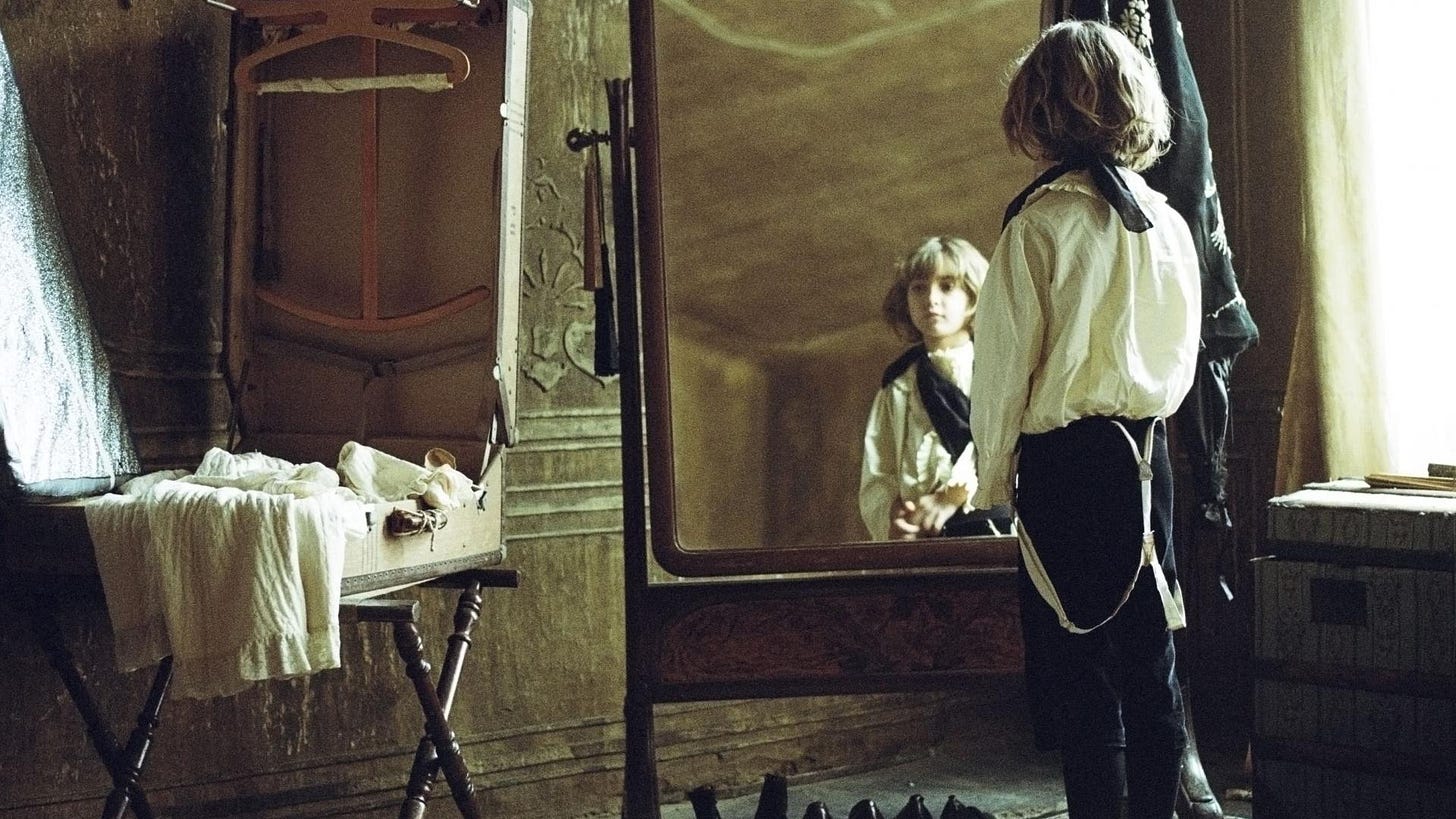🎬 #146 Cinematic Time Spans.
The two films this week jump significant amounts of time in the closing minutes of their final acts. Everything that’s lead up the those moments is in preparation of that final blow. Time changes us and significant or seemingly insignificant moments in our lives can lead to profound developments over time. That’s the theme that both films deal with, one more so than the other.
Happy choosing, happy viewing
Bry
FILM ONE: MEMORIES OF MURDER
2003 Dir Bong Joon-Ho
2 hrs 12 mins
Just Joon-Ho’s second film and yet all the hallmarks of what make him an exciting filmmaker are on display. In fact, in one signal shot in the opening minutes we have the very thing that defines him, comical, almost slapstick lightness butting right up against the darkest of acts. He nimbly weaves his narratives between the darkest of dark and the lightest of light - with almost every single descriptor touched on, in the gradient between them.
The above frame, for example, could be from the Korean equivalent of The Hangover, or a buddy cop comedy. Yet he manages to incorporate these elements into this film without the tonal balance ever feeling off or unsure of itself. It’s a brilliant skill to behold, when even telling the simplest of stories in a compelling way is seemingly impossible without all filmmaking gods aligning.
His creative blocking, camera movement and always dynamic framing feels totally assured even as a younger filmmaker. And his ability to make the film feel like one made in the 80’s, to fit its timeframe, is just another one of those distinctly Joon Ho touches. The circular construct of the film and the importance time and place plays in our lives is satisfying beyond a doubt.
TL;DR: Joon-Ho’s serial killer, black comedy thriller has all the ingredients we’ve come to expect from him.
*Available for a small rental fee on Apple in the US and Amazon and Apple in the UK.
Fact: It took Joon Ho 1 year to write the script but he’s said the first 6 months were just research, he only started actually writing, writing in the second 6 months.
FILM TWO: THE CHILDHOOD OF A LEADER
2015 Dir Brady Corbet
1 hr 55 mins
In anticipation of The Brutalist I’ve watched both Corbet’s films - this is his first. And the fact that this is his first film, made when he was 27 and conceived when he was just 17 makes it all the more impressive. I had only tangentially heard of the filmmaker’s second film Vox Lux, because I thought it looked really intriguing but I missed it when it was first released. I just remember thinking it felt fresh.
After seeing both films, he’s quickly become one of my favourite filmmakers - there is a classical sense of importance, of ‘big ness’ that he manages to capture. This one in particular is such a powerful, disturbing portrait of a what a child has the capacity to become. Dealt with in a cooly distant (Brady has cited Dreyer as an influence) minimal way - but this never alienates us, it keeps us tightly glued to every move, every shift of body language. The rich texture of Lol Crawley’s cinematography gives the world a gothic feel, a decaying but privileged world where evil can come to fruition. Like mould in the dark corners of a rarely visited damp room in a mansion. The dissonant, frightening score by Scott Walker adds to the film’s horror feel - in the same way that There Will Be Blood might be described as a horror.
The economy with which Brady tells the story is striking. There is a literary grandeur to the film even though it is so simple, in terms of what actually happens. But in the pacing, ‘the baggyness’ that Brady has referred to - there is a tantalising quality where anything might happen - the frame is left open to things springing from it. Just like the plucky score, events can change in a nanosecond - leaping out at us from the edges.
He’s also particularly attuned to how titles and credits, the graphic design elements can add so much to a film - most recently articulated in the excellent treatment of motion type in the trailer from The Brutalist. The implications of what can be birthed from this kind of childhood, neither tragic or bad in any particular way, in fact it’s a very privileged upbringing, leave us haunted. The scale of what can be, from small beginnings, is terrifying.
TL;DR: Corbet’s first film is a great debut that led Jonathan Demme to compare him to Welles.
*Available for a small rental fee on Apple and Amazon in the US and the UK.
Fact: There is a shot in the final act of a group of men around a table. That single shot took 8 takes and 18 people to operate the crane and camera.



